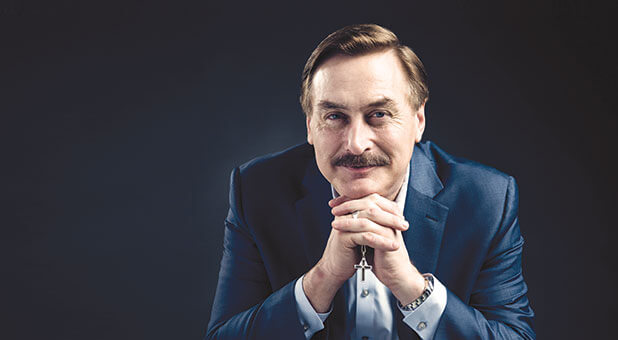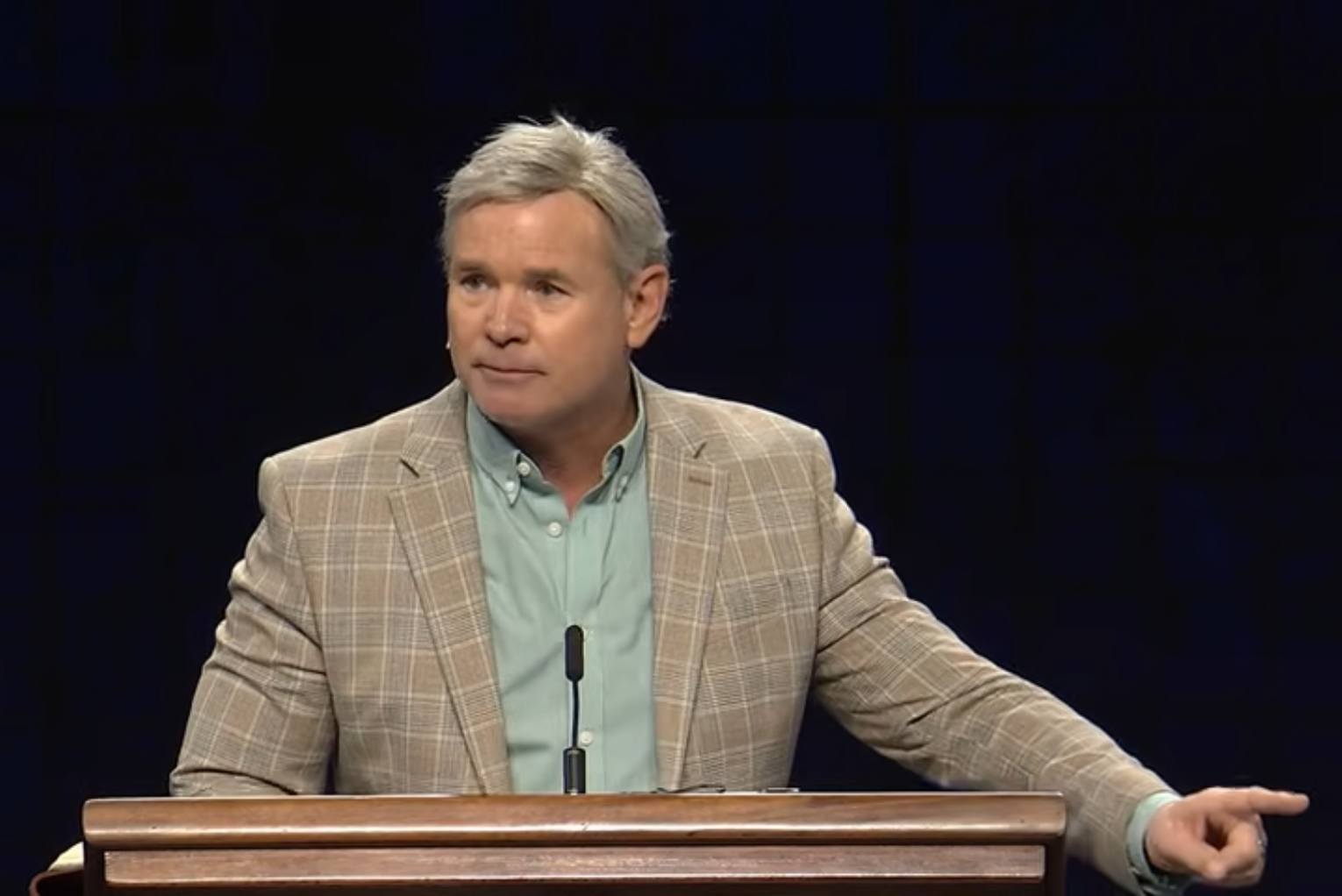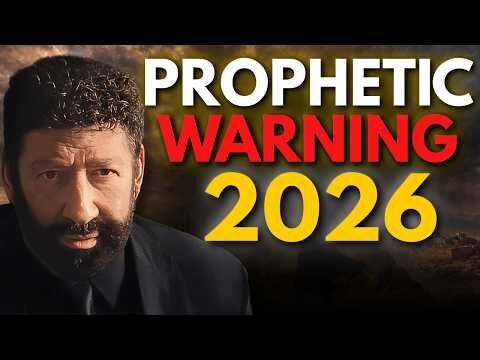If you watch TV at all, you’ve seen Mike Lindell. He’s the bold, boisterous, broad-mustached CEO of infomercial fame who invented MyPillow because he couldn’t get a good night’s sleep. Almost overnight he went from life as a functional crack, alcohol and gambling addict who made his living running honkytonks and counting cards in casinos to leading a multimillion-dollar business. Yet he only turned his life over to Christ in 2017.
Lindell has now emerged as a friend of President Donald Trump and a high-profile Christian leader who has helped underwrite events such as “The Return” and fund major motion pictures, including the pro-life project Unplanned.
He has also sold 43 million MyPillows and expanded to mattress pads and toppers, sheets, towels, even bedding for dogs and Mike Lindell bobblehead toys. (I bought one.) He employs 1,500 in his home state of Minnesota (and another 1,500 around the country). He’s well on his way to hit a billion dollars in annual sales in 2021, especially with the addition of MyStore.com, an online store launching in January that he believes will help entrepreneurs sell their products. But while these facts make up a significant part of his story, they’re not the entire story. Not by a long shot—as Lindell himself might say in his broad Minnesota accent.
Lindell believes God has given him a “platform” to bring people to Jesus, and he’s started a faith-based recovery network that is growing almost as fast as MyPillow. In fact, he seems to have had a unique connection with God long before he knew Him. He received prophetic words about his platform long before he got off crack, gave up gambling or even received Christ. He wore a cross necklace over a bright blue shirt on his commercials long before he became a Christian. He also told others they should accept Jesus and get off drugs long before he attended a retreat called Operation Restored Warrior in 2017 and was confronted with his own need to finally surrender his life to Christ.
His story of believing God for creative ideas and having the Lord come through at the last minute again and again—even saving him from death—is the theme of his memoir, What Are the Odds? The book recounts lows and highs in his life more outlandish than those you’d expect to find in an action-packed adventure movie. In fact, he hopes to make the book into a movie by spring 2022.
One of Lindell’s greatest creative ideas, the one for MyPillow itself, came in a 2004 dream in which God gave him both the name and the concept for making his product unique. This launched his platform, despite the fact that he almost went bankrupt, lost his marriage, had employees try to steal his company and faced multiple lawsuits. His book, which God told him he would write years before he could share it, includes one miracle story after another.
As a Christian journalist for more than four decades, I’ve interviewed hundreds of people who have extraordinary stories of changed lives or developed major platforms to spread the gospel. But never have I had an interview more fascinating than the one I had with Lindell when I flew to the Twin Cities and spent close to five hours hearing his stories and touring two gargantuan facilities. We discussed how, long before he recognized it, God was working in his life, what He has done in the intervening time and the divine destiny he now sees unfolding—which I hope inspires you to experience the same.
Full disclosure: I love MyPillow. And so does my brother-in-law Jim Ferrell, who told me he bought at least 30 pillows trying to find a good one until he discovered Lindell’s invention. I took an easier route. I saw the commercials, bought a MyPillow and loved it.
I’d seen Lindell wear his famous cross on TV and heard he might be a Christian. So I wasn’t surprised to see him at the National Religious Broadcasters convention in 2019 where someone introduced us. “You’re the man who improved my sleep,” I told him. Without missing a beat, he responded in a sing-song voice I recognized from his infomercials: “I knew it would.”
As a businessman and entrepreneur myself, I admire the way Lindell has navigated the many obstacles he has faced and led his company into exponential growth. But this CEO has one consistent message: All this is only a platform for pointing people to Jesus.
“The platform that has now manifested is a platform for a great revival,” he told me. “Whether that includes me going into politics, just to evangelize, whether it doesn’t include that … it’s all the same. All the roads lead to Jesus.”
I grew up in a Christian home, so for me, Lindell’s story of alcohol, drug and gambling addiction offers a fascinating look into a world I don’t know. And to see the hand of God giving him prophetic words even when he was running taverns and gambling or taking drugs seemed almost unbelievable. According to accepted theology in charismatic circles, the miracles come after your life is surrendered to Jesus and you’re pursuing godliness—not when you’re totally immersed in an ungodly lifestyle.
For What Are the Odds?, which he self-published, Lindell did something no cost-conscious publisher would do: He chose an expensive cover that included two holograms. The front is a professional shot of him today, flipping to one taken by his drug dealer after Lindell had been awake for 14 days straight on a crack-cocaine high. The back, a cute picture of Lindell as a 7-year-old, morphs into one of him speaking at Liberty University. That boyhood photo has significance, he told me. He was just 7 when his mother left his father and moved into a mobile home with her three children. That’s when the wounds developed that, he later learned, drove his addictions and inappropriate behaviors. Until that point, he seems to have had a stable upbringing—fishing and hunting trips, playing with neighborhood kids, living on a lake with both parents.
‘Everybody’s Looking for Hope’
Those deep childhood wounds never healed until he encountered two significant programs that helped him gain true freedom: Operation Restored Warrior and Living Free. Both helped him face and gain healing from the wounds he says he has in common with every other addict. His own freedom has now birthed a major focus in his life—the recovery network he believes will help heal millions.
“The Lindell Recovery Network is my calling to use in a big way,” he says. “Because that’s what’s going to bring the biggest revival. … This platform gets it done, because everybody’s affected by addiction, and everybody’s looking for hope.”
As difficult as life became after his parents split, his mom took the kids to an Assemblies of God church and Sunday school. There, he learned a few things about the Bible, especially about the end times, which became a personal fascination after the church showed a movie on the topic.
“It just resonated with me,” he says. “I never forgot that.”
Lindell shares how when he tended bar he would tell his intoxicated customers that “the computer is the beast” and scanners were part of the plan to take away the use of cash. Somehow many customers and other friends would be scared straight and walk away from their addictions, even as Lindell continued his own.
“You’ve got to think how powerful it is when I’d be doing lines of cocaine with them, and drinking, and I’m sitting there telling how bad it is,” he explains. “Now you’d say, ‘Well, that’s a hypocrite,’ right? They would say, ‘You know what? You’re doing it. What do you mean? If you’re so good, why don’t you quit?'”
But Lindell adds, “They would believe me, 100%. I would even tell the dealers that someday I’m going to quit and have this platform, and it’s going to change the world. I would start prophetically seeing that a long time ago. My friends were walking down the street, and I said, ‘I’m part of the great revival in the Bible—in the end times,’ I said. ‘I’m a leader of that.’
“I could tell you the names of those who quit forever overnight,” Lindell says. “Now whether they found the Lord or not, that part I didn’t know, but they definitely quit their [addiction].”
Even as a child Lindell showed a willingness to risk it all, like the time he bet his friends he could jump out of the window of a moving school bus. Thankfully he landed on soft snow. He also displayed an early entrepreneurial flair by hosting carnivals at the trailer park where he lived. “I felt if I could deliver amazement, the kids would like me,” he writes. “In the little playground at the center of the trailer court, I would put on carnivals complete with games (penny pitch, softball throw) and magic shows.” He even bet neighbor kids a quarter that he could escape if they buried him up to his neck in sand. (He lost the bet, and the trailer-court manager saved his life.)
But he also began to try more dangerous means of coping. He wanted to entertain but was painfully shy. In high school, he discovered what he calls a “secret weapon” to help deal with his shyness: alcohol, starting with peppermint schnapps and then sloe gin.
Almost at the same time, Lindell began his gambling habit in earnest, fueled by his constant desire for the “high” he got when he won at the last possible moment. In his younger years, he bet on a simple card game he played with his parents and even on the marathon rounds of Monopoly he shared with friends.
“I always found it more interesting when there was some kind of wager, even if it was just five bucks,” he writes. “This is how I put down gambling roots early on.” But by his sophomore year of high school, he says, “I bet on anything I could.”
What Lindell didn’t realize at the time was that these habits were activating the chemical reward system in his brain. “For me, sports betting—and later, playing craps and especially sitting at a blackjack table—was like an IV drip of pure satisfaction,” he writes. “In fact, that dopamine drip is a real thing, and so powerful that people will literally destroy their lives to get it.”
And Lindell continued on a path to destruction. After high school, his gambling addiction only increased, bringing him to desperation after losing $25,000 in one long weekend of NFL betting. In an effort to escape his Mafia-style creditors, who threatened his family, he broke into a gas station, hoping to land in the relative safety of jail. After leading police on a high-speed chase, he did end up in jail and at the mercy of the southern Minnesota gossip chain. While serving in work-release, he earned as a result of that escapade, a friend introduced him to what Lindell says became his “new best friend”: cocaine. That began an addiction, which later morphed to a nearly 20-year crack habit only ended by God’s miraculous intervention.
Lindell describes himself as a “functional addict,” but his addictions kept hurting his family and business, as addictions always do.
In 1985, he fell in love with Karen, mother of his children, who joined him in his crack addiction and put up with his wayward ways for 20 years before she left him for another man. During this time, Lindell coached Little League and, on the surface, looked like a good parent, even though his various addictions drained the family financially.
At one point, he decided to take his family on a long vacation, flying into Las Vegas, where he planned to “gamble a little” and then drive on to Southern California, where the Lindells would visit the typical tourist sites such as Disneyland, Knott’s Berry Farm and Sea World. He spent the first night at the craps table in the casino across from their motel and lost every bit of the $4,000 he and Karen had brought along for their vacation. In typical fashion, he manipulated a pit boss into giving the family a huge suite for the night, then headed for California as planned.
“For the rest of our vacation, we scraped by on the proceeds from four ATM cards, heading to the machines at 12:01 a.m., pulling out our daily limit to get through until midnight the next day,” he writes. “The night before we were to head home, we rolled into a little Best Western. The six of us had one room with one bed and no money.”
‘You Will Be Provided a Platform’
Time and again, a “miracle” would happen like one that took place when Lindell, then only 20 years old, already owed a bookie $12,000. He walked into a bank and, instead of spinning a story, decided to be totally honest with the loan officer. “Mark, I’ve lost money to some bad guys with some betting, and I need cash right away,” he said. “I’ve gotta have $12,000. You can give it to me as a mortgage on my trailer.” Most people would have been turned down flat. But Lindell had his cash within 15 minutes and paid off his debt in full.
Another time, when Lindell was on his way home from a failed gambling binge in Kansas City, Missouri, he accidentally drove into a rough area of town, hitting a pothole that caused the camper shell to fly off his truck bed and land in the street. Just then, two men approached, one of them holding a gun.
Instead of fear, all Lindell felt was a crack-induced rage. He says he yelled at the men to put the gun away, adding, “I’ve got all of six bucks on me, and you can each have three! But first you’re gonna help me put this camper shell back on my truck!” The two men walked over to where Lindell was attempting to drag the camper shell by himself and helped him lift it onto the truck bed. Then they silently disappeared.
God kept showing up in his life long before Lindell recognized Him. He woke up one morning with words swirling around his mind, so he grabbed a notebook and wrote them down. “It wasn’t like I was writing,” he says in his book. “It was more like I was taking dictation. My hand moved the pen, and words appeared on the page. It struck me that these were words I didn’t even use.”
Lindell ended up with six pages of handwritten notes that included a step-by-step plan for getting off crack. The notes also included these mysterious words: “You will know when the time is right, and you will be provided a platform.”
He writes, “Were these thoughts from somewhere—or Someone—else? I didn’t know.”
A major influence was his sister Cindy Carlson, who was what we’d call an “on-fire Christian.” His book explains how he couldn’t understand why she and her husband, Bryan, drove more than an hour across town to attend Living Word church, pastored by Mac Hammond.
The same day Lindell received the divinely dictated plan to get off crack, his sister called him. Hammond had brought her up in front of the congregation that morning and asked if she had an older brother named Mike. God had given the pastor a prophetic word for Lindell, and his sister shared it. “Whatever happened to your brother, it’s important. He has to follow through on it, and you need to tell him.”
Lindell knew exactly what this meant. Shaken, he grabbed the notebook containing the plan and stuffed it behind a framed album cover hung on the wall. Four years would pass before he saw those pages again.
As if this weren’t enough, right after a girlfriend left him and he came out of a stress-induced walking coma, in one 24-hour period, four people gave him nearly identical messages. A local TV station kept replaying what he considers one of the worst interviews of his life. One night a woman called his business cellphone to ask if he was the one whose interview she’d watched. “I don’t want to buy a pillow,” she told him. “But I was praying, and God let me know that what you’re doing is so important. You can’t give up.” Then she prayed for him and MyPillow for 30 minutes while he listened and did lines of cocaine.
Ninety minutes later a local boutique owner called and said she also saw him on TV. “God’s called me to pray for you. What you’re doing is very important, and you can’t give up,” she told him. “Although I didn’t know what the future held or why, I was encouraged that the woman said this company was important to God,” Lindell writes.
Hours later his phone rang at 3 a.m., and a male voice barked, “Well, let me tell you something, pal, I don’t believe in God, but I keep having this dream that I’m supposed to call you and tell you what you are doing is important to God.”
Finally, the next morning a woman called. She didn’t want to buy a pillow either, but she did want to pray for him. “You have a ‘platform,'” she said tentatively, echoing Hammond’s 2003 prophetic word. “But I don’t know what that means.”
The story that fascinated me most was how he instantly got off crack. I’d read his 325-page book, so I was aware of the stranglehold his addictions had on his life. Yet in a 24-hour period, he dropped the crack habit. He said Jesus took away his desire for drugs on Jan. 16, 2009, and it’s never come back. And this took place long before he surrendered his life to Christ and five years before he was delivered of gambling. He broke that addiction in 2014 after he heard an audible message from God while driving down the highway toward a casino.
Growing up in Christian circles I’ve seen many seemingly strong believers who continue to struggle with addiction or other problems despite going through deliverance or fasting and praying to be free. I’ve heard a few testimonies from people who say Jesus delivered them instantly, but those are exceptions, not the rule. Yet even for believers who may struggle with relapses of drinking, pornography or other addictions, Lindell’s story offers true inspiration.
In his book, he recounts how he picked Thursday, Jan. 15, 2009, as his final day of bondage. That night as he slept on a friend’s sofa, he prayed what he says may have been his first genuine prayer. “God, when I wake up, I don’t ever want to have the desire for drugs or alcohol again.” He remembers when he woke up, he was lying in bed like someone who has had a bad fall and staying there a minute to determine if they’ve broken anything.
“Yes, I was all in one piece,” he writes. “And I could feel, without question, that my desire for drugs and alcohol was gone. … But the greater miracle was how I felt inside. I felt calm and refreshed and peaceful. It was a new kind of peace I had never experienced. I also felt an urgent sense of calling.”
His calling, of course, was to use his business platform and notoriety to bring people to Jesus. When I told one of my businessman friends about my interview, he said Lindell’s story lets him know God can use businessmen, not just ministers, to impact the world.
Even for people who never gamble or abuse drugs, seemingly everyone can relate to some sort of deep pain like Mike Lindell experienced. And every believer in Jesus can pray they will experience miracles over the problems in life or receive creative ideas that turn into business or ministry successes. And who wouldn’t like a huge testimony such as going from life as a cocaine and crack addict to become an inventor and CEO of an outrageously successful business?
Mike Lindell seems the least likely person to become a famous Christian leader. His spiritual journey is unlike any I’ve ever heard, which is one reason I wanted to interview him myself. I hoped I could learn more from his unconventional life and be inspired by how he uses the huge platform God has given him. I also hoped that by telling his story, I could inspire Charisma readers how they too can learn from his testimony.
There’s so much more to the Mike Lindell story, such as the supernatural connection he made with Rabbi Jonathan Cahn that led to his sponsoring The Return, and the unbelievable series of miracles that allowed him to become a confidant of President Donald Trump. As I wrap up this article, I remember the concluding words of the book of John: “There are also many other things which Jesus did. Were every one of them to be written, I suppose that not even the world itself could contain the books that could be written” (John 21:25).
One of the biggest parts of his story is the miracle that started his Lindell Recovery Network, which space does not allow me to cover. So watch for a second article about Mike Lindell in the next issue of Charisma, about his addiction recovery network, including how you can get involved.
For me, reading Lindell’s book (which I recommend you also read) and spending several hours with him were enormously inspiring. In my years of covering the charismatic world, I’ve heard numerous testimonies, and in my walk with God, I’ve had a few miracles of my own, but nothing like Lindell’s. His story motivates me—as I hope it motivates you—to believe God for great things that will lead people to Jesus and spark the great revival Lindell says God has shown him lies ahead.
Stephen Strang is founding editor of Charisma. Learn about the books he’s written at stevestrangbooks.com.
This article was excerpted from the January-February issue of Charisma magazine. If you don’t subscribe to Charisma, click here to get every issue delivered to your mailbox. During this time of change, your subscription is a vote of confidence for the kind of Spirit-filled content we offer. In the same way you would support a ministry with a donation, subscribing is your way to support Charisma. Also, we encourage you to give gift subscriptions at shop.charismamag.com, and share our articles on social media.












































